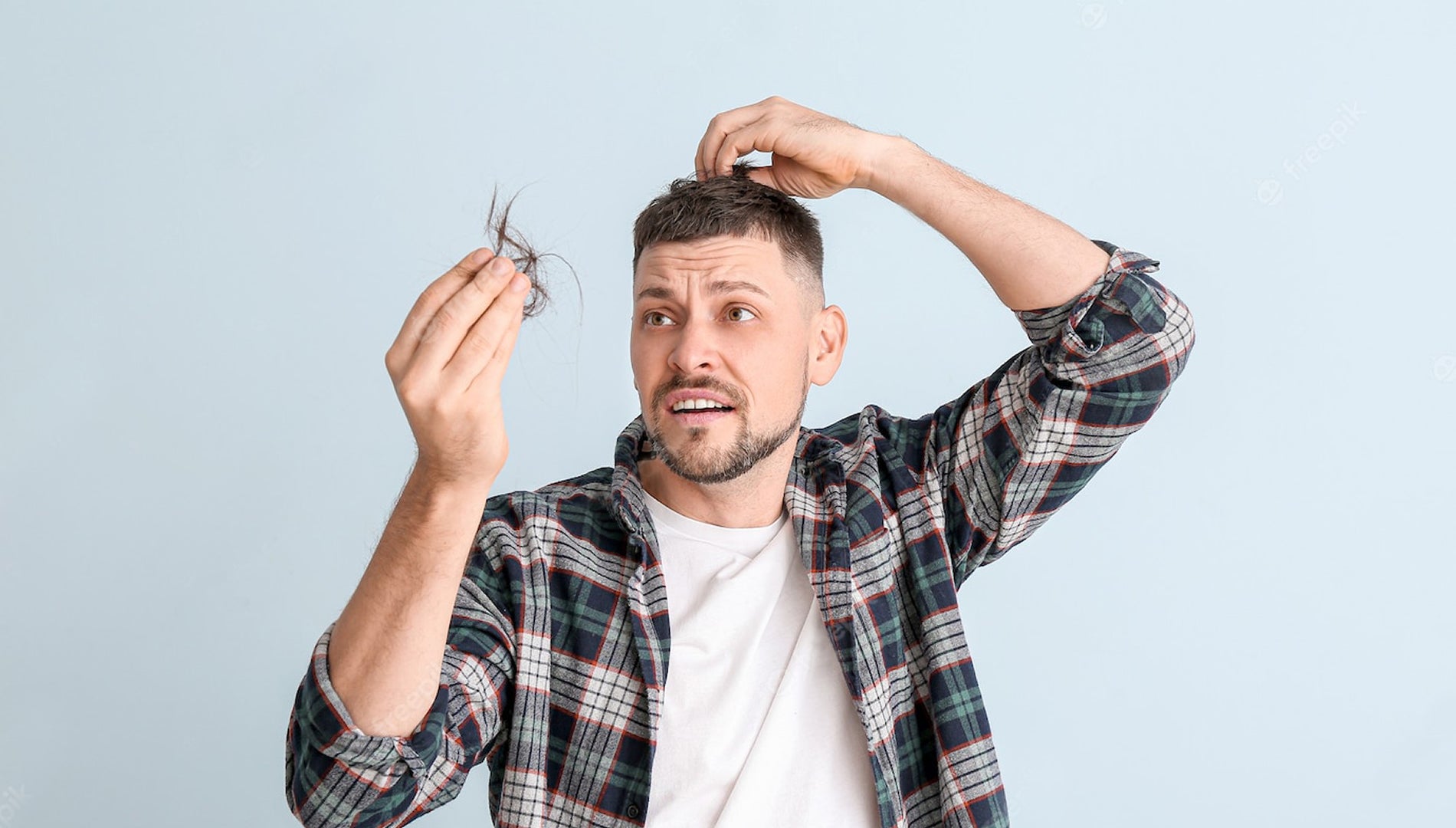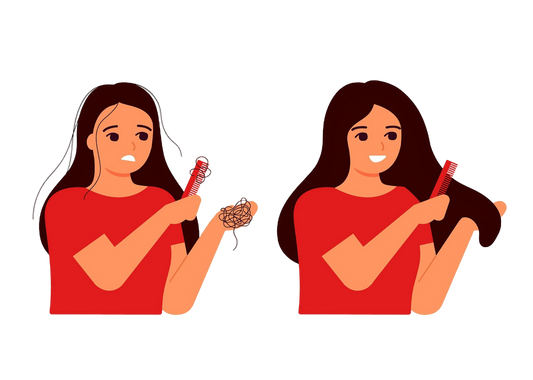Articles

Skin Care
Dealing with Hairfall in Men: Causes, Prevention, and Solutions
Hairfall is a common concern among men, and it can significantly affect one's self-esteem and confidence. Whether it's a receding hairline, thinning hair, or bald patches, understanding the causes and finding effective solutions is crucial.
In this blog post, we will explore the various reasons behind hairfall in men, discuss preventive measures, and highlight possible solutions to help you combat this issue.
Causes of Hair fall in Men:
1. Genetics (Male Pattern Baldness):
The most common cause of hair fall in men is androgenetic alopecia, also known as male pattern baldness.
This condition is influenced by genetics and hormones, causing hair follicles to shrink over time, resulting in shorter and thinner hair strands.
2. Hormonal Imbalance:
Fluctuations in hormone levels can contribute to hairfall.
An excess of dihydrotestosterone (DHT), a hormone derived from testosterone, can cause hair follicles to shrink, leading to hair thinning and eventual hair loss.
3. Poor Scalp Health:
An unhealthy scalp can directly impact hair health. Conditions like dandruff, scalp infections, and excessive oiliness can weaken hair follicles and result in hair fall.
4. Nutritional Deficiencies:
Inadequate intake of essential nutrients, particularly vitamins (such as biotin, vitamin D, and vitamin E), minerals (like iron and zinc), and proteins.
It can weaken hair strands and lead to increased hair fall.
Preventive Measures for Hairfall:
1. Maintain a Balanced Diet:
Ensure your diet includes a variety of fruits, vegetables, lean proteins, and whole grains to provide your body with the necessary vitamins and minerals for healthy hair growth.
2. Avoid Excessive Heat and Chemical Treatments:
Frequent use of heat-styling tools, harsh chemical treatments, and excessive hair dyeing . It can damage the hair shafts, leading to breakage and hairfall.
Minimize their usage or opt for gentler alternatives.
3. Practice Good Scalp Hygiene:
Keep your scalp clean by regularly washing your hair with a mild shampoo. Avoid excessive scrubbing and harsh products that can irritate the scalp.
If you have dandruff or other scalp issues, consult a dermatologist for appropriate treatment.
4. Manage Stress:
Chronic stress can contribute to hairfall. Incorporate stress-management techniques into your daily routine, such as exercise, meditation, or engaging in hobbies . It will help you to enjoy, and to reduce stress levels and promote overall well-being.
Solutions for Hair fall:
1. Over-the-Counter Treatments:
There are several over-the-counter products available, such as minoxidil that can help slow down hair loss and stimulate regrowth. Consult a dermatologist to determine the most suitable product for your specific needs.
2. Prescription Medications:
Finasteride is a prescription medication that can help inhibit the conversion of testosterone into DHT, thus reducing hair loss in men.
However, it's important to consult a healthcare professional before considering this option due to potential side effects.
3. Hair Transplantation:
In cases of significant hair loss, hair transplantation can be a viable solution. This surgical procedure involves transferring healthy hair follicles from one area of the scalp to the thinning or balding areas, resulting in natural hair regrowth.
4. Cosmetic Solutions:
There are various cosmetic solutions, such as hair fibers, hairpieces, and scalp micro pigmentation .
It can provide temporary coverage and the appearance of thicker hair. These options can be explored for immediate aesthetic results.
Conclusion:
Hair fall is a common concern for many men, but understanding the causes and taking preventive measures can help minimize its impact. Maintaining a healthy lifestyle, managing stress, and practicing good scalp hygiene are essential steps.
Additionally, seeking professional guidance and considering suitable solutions like over-the-counter treatments, prescription medications, or hair transplantation can restore hair and confidence.
Remember, addressing hairfall requires patience and consistency, so stay committed to a healthy hair care routine and embrace your unique style confidently.

 Doctor Consultation
Doctor Consultation













